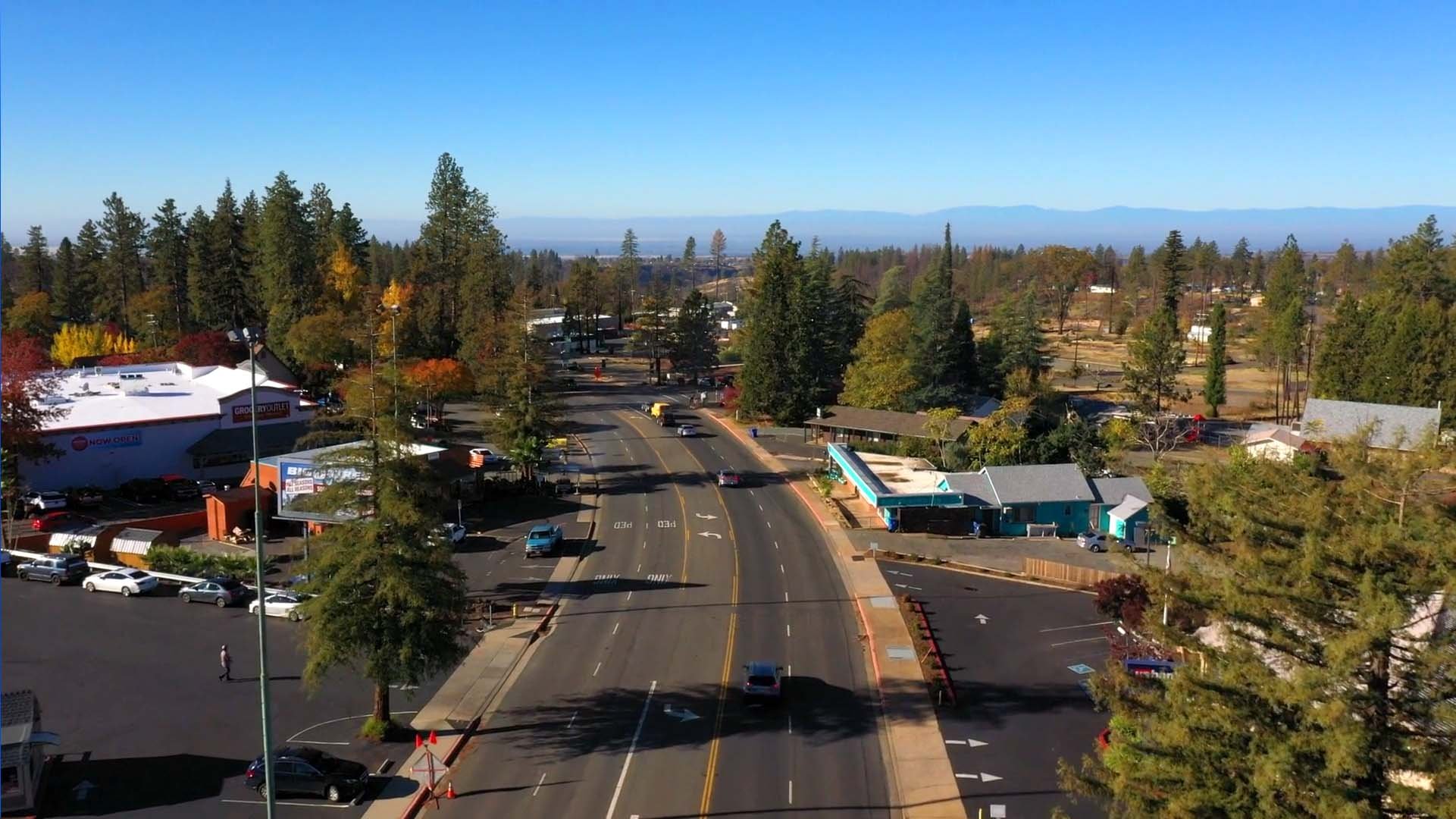Building Resilience to Wildfires: A Nature-Led Approach
Like other regions around the globe, California now faces more frequent and destructive wildfires every year. These events are devastating to communities, causing tragic loss of life, destroying homes and critical infrastructure, and threatening natural ecosystems. If projections in the latest report by the Intergovernmental Panel on Climate Change (IPCC) hold true, communities could face much more destruction in the future.
As communities seek new approaches, there is an opportunity to rethink land use planning and relearn historic indigenous fire management practices that have allowed tribal communities to coexist with nature. Paradise, a town nestled in the foothills of the Cascade and the Sierra Nevada mountains, is at the forefront of this work. Here, after facing the devastating Camp Fire in 2018, the Paradise Parks and Recreation District is working with communities, Big Chico Creek Ecological Reserve, and The Nature Conservancy to test new ways to live with wildfire.
The District has turned to nature and forest stewardship to maintain forest health, protect itself from future fire risks, and heal the community. Nature-based solutions include using prescribed burns, maintaining a clean understory, and encouraging the growth of fire-resistant vegetation alongside creating risk reduction buffers. Positioning these buffers to consider geographic features and the natural behavior of fire can further protect the wildland-urban interface. Multiple partners have come together to put the region on a track that is thinking decades into the future. Instead of fire suppression alone, fire is accepted as a necessary and inevitable part of the landscape that can be proactively managed—learning from traditional indigenous practices such as prescribed burning.
There are lessons to be learned from Paradise for other communities. Nature can aid planning, be a source of healing, create jobs, and provide better access to communities.
ABOUT
Video Production Team:
Eric Arthur Fernandez of Raffia Pictures (DP/Director) is an Emmy award-winning cinematographer and filmmaker who specializes in documentary and non-fiction films and television. He has worked on a wide variety of projects for the New York Times, PBS, VICE News Tonight on HBO, Hulu, The Guardian, National Geographic, Netflix and others.
Nick Curran (Editor) is a filmmaker and editor who focuses largely on local politics, communities, activism and social justice. His shooting and editing work for documentary and reporting has appeared on the New York Times, Teen Vogue, The Intercept, Topic, Means TV and PBS.
Loroto Productions (Post-production services) is a production company which excels at documentaries, music videos, branded content, event coverage, internal post-production, e-commerce and everything in between.
Resilient Cities Catalyst (RCC) drives catalytic change to help regions, cities, and partners solve their most pressing challenges. RCC works towards a vision where cities ensure that all residents, in particular, the most vulnerable, are safer, healthier and thriving in the face of everyday stresses, and are able to withstand and recover quickly after shocks.
RCC’s flagship resilience program, the California Resilience Partnership (CRP), is a statewide, multimillion-dollar public-philanthropic effort in coordination with a diverse set of organizations and stakeholders, along with participation by representatives of California State agencies, that is developing new partnerships to advance high-impact projects that tackle California’s complex resilience challenges in regions across the state.
The Resilience Shift’s (TRS) mission is to be the global hub for resilience best practice, accelerating critical infrastructure resilience across engineering and business sectors. It aims to influence policy makers and practitioners and empower them to shift their behaviours and implement innovative approaches to the commissioning, design and operation of infrastructure. It is part of a wider network of partners that are focused on the critical need to build resilience globally across all communities.





